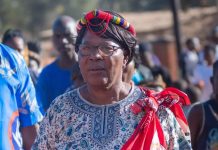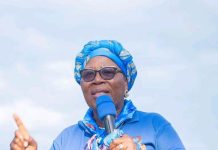Africa-Press – Malawi. As Malawi joined the rest of the world in commemorating World Sickle Cell Awareness Day on Thursday, health stakeholders sounded the alarm over what they call a “silent national crisis” — the continued neglect of sickle cell disease, one of Malawi’s most overlooked non-communicable diseases (NCDs).
Every year, an estimated 2,000 children in Malawi are born with sickle cell disease, yet the condition remains dangerously under-prioritized. Most parents are unaware of the symptoms, few facilities are equipped for early diagnosis, and stigma continues to cloud the lives of those living with the disease.
This year’s commemoration, held under the global theme “Global Action, Local Impact: Empowering Communities for Effective Self-Advocacy,” shone a light on this deepening health crisis. In Malawi, the Non-Communicable Diseases Alliance Malawi (NCD Alliance Malawi), in partnership with the Ministry of Health, marked the day with a nationwide radio panel discussion, urging urgent action from government, civil society, and communities.
Panelists—Esther Nyirenda of NCD Alliance Malawi, Andy Msamanyada of the National Sickle Cell Association, and Frank Mkwenembera, the NCD Coordinator at Kamuzu Central Hospital—delivered a sobering message: sickle cell is claiming lives quietly, mostly among children under the age of two, and without comprehensive public health response, the situation will worsen.
Msamanyada shared heartbreaking statistics: “Many children with sickle cell die before their second birthday due to complications like severe anaemia, infections, and acute chest syndrome. And this is happening silently.” He urged couples to consider genetic screening before marriage as a preventive measure, and commended the growing network of sickle cell support groups, started by people living with the disease, for filling gaps in care and psychosocial support.
Mkwenembera stressed that most deaths are preventable. “We must move away from myths and traditional medicine. Early diagnosis, access to pain relief, antibiotics, and regular medical care can significantly reduce mortality,” he said. He called for decentralization of sickle cell services and availability of medicines at district-level hospitals.
Nyirenda emphasized the role of long-term government investment and stronger civil society action. “We need to ensure people have access to accurate information, affordable testing, and essential treatment. This isn’t just about healthcare—it’s about human rights and dignity,” she declared.
The radio program was produced by NCD Alliance Malawi with financial support from NCD Alliance Global and technical backing from the Ministry of Health. But stakeholders made it clear: awareness campaigns, while critical, are not enough without systemic policy shifts, funding, and sustained political will.
Sickle cell may not make headlines like HIV or malaria, but for thousands of Malawian families, it is a daily battle for survival—and a disease that can no longer be ignored.
For More News And Analysis About Malawi Follow Africa-Press






